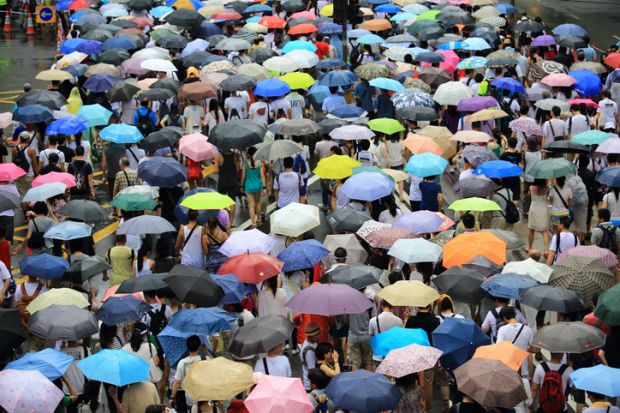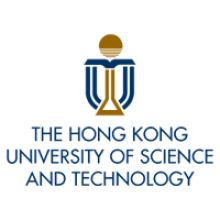Hong Kong universities remained shuttered for a second day after protest-related violence across the city led to nearly 100 injuries and 260 arrests on 11 November.
Classes and most graduation ceremonies were cancelled at nine public and two private universities on 12 November, with several institutions saying that closures would continue through 13 November. The Vocational Training Council suspended classes at its 13 tertiary education centres after one of its students, an unarmed 21-year-old, was shot by the police in a residential area the previous day.
The shooting added fuel to the fire in a city still reeling from two incidents last week at The Hong Kong University of Science and Technology. At an open forum about the protests, a HKUST student from mainland China was beaten in what the administration called “totally unacceptable assault and battery”. A few days later, another HKUST student died from injuries linked to off-campus police tear-gassing. HKUST tightened security this week so that only “authorised persons” can enter campus.
News of the assault on the vocational student went viral. Soon after, protests broke out at the University of Hong Kong, Chinese University of Hong Kong and Hong Kong Polytechnic University (PolyU), leading the police to deploy tear gas on university grounds for the first time since pro-democracy demonstrations began nearly six months ago. On 12 November, clashes spread to City University of Hong Kong.
Hong Kong has an established protocol in which police officers do not enter campuses unless they have prior permission, are responding to a 999 emergency call, or hold a search warrant or court order. Some students, feeling that the tacit agreement between universities and the police was breached, built barricades and set fires to prevent officers entering campuses.
HKU said in a statement that the police cleared roadblocks to an entrance, chased students onto campus, and that “tear gas and pepper spray were fired in the vicinity”. After five HKU students were arrested within a 24-hour period, HKU president Xiang Zhang appealed to the police commissioner to “ensure the safety of the detained students and to observe fully their fundamental rights”. He also clarified that a police ordinance does allow officers to enter without consent if they “reasonably suspect” there is cause for arrest.
“We understand that these are times when emotions are running high everywhere,” Professor Zhang wrote in an email to the university community. “We are also very saddened to see the casualties and loss of life arising from the protests. Let us remember that this is our campus, where we study and work, and we should safeguard it.”
Fu Hualing and Johannes Chan, HKU’s current and former law school deans, tried to deter vandals at an on-campus subway station. “You are HKU students,” Professor Fu said to a group of masked youth. “You can do better. You must do better. Let’s talk about this. Let’s do it. It’s only been a half a year. You fight for democracy – it’s a lifetime commitment.” The visibly distraught students responded by asking “How many people do we have to sacrifice? Do we let it go on? Until we die? We will not forgive. We will not forget.” The scene was caught on video by Antony Dapiran, a lawyer and author whose HKU master’s thesis was about the pro-democracy Umbrella Movement.
CUHK looked like a war zone in a live blog feed by The South China Morning Post, which showed protesters trying to fortify a “defence line” against officers in riot gear. Some students huddled under umbrellas or hid behind mattresses to protect themselves from plumes of tear gas. At PolyU, a fire was lit on the pedestrian overpass connecting campus to a busy urban area. The arson happened near the entrance of a cross-harbour tunnel, one of the city’s main transport thoroughfares.
More than 700 tertiary students were arrested between June and 5 November, according to a tally by Sing Tao, a Chinese-language Hong Kong newspaper.








